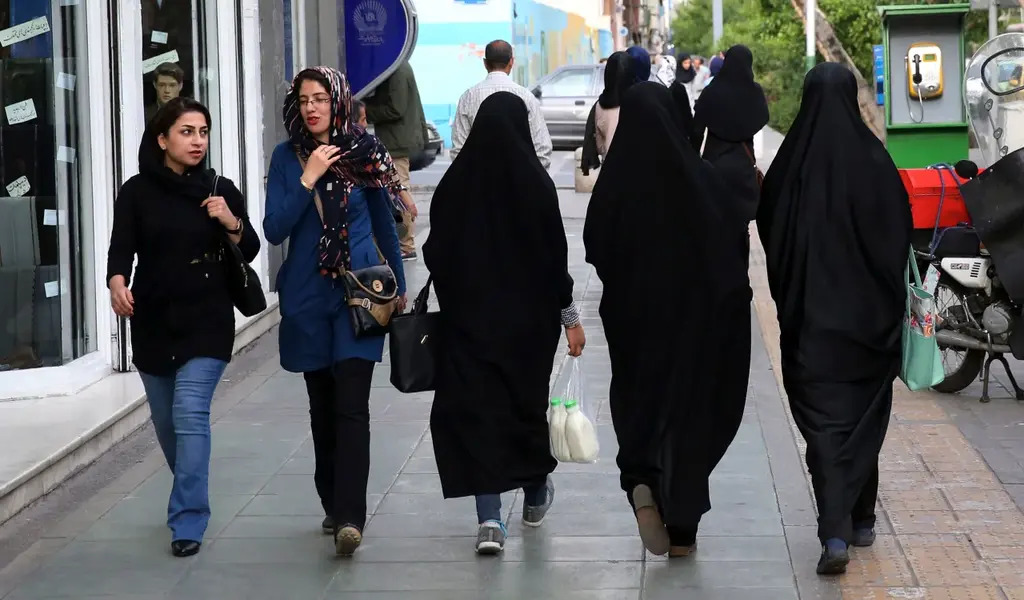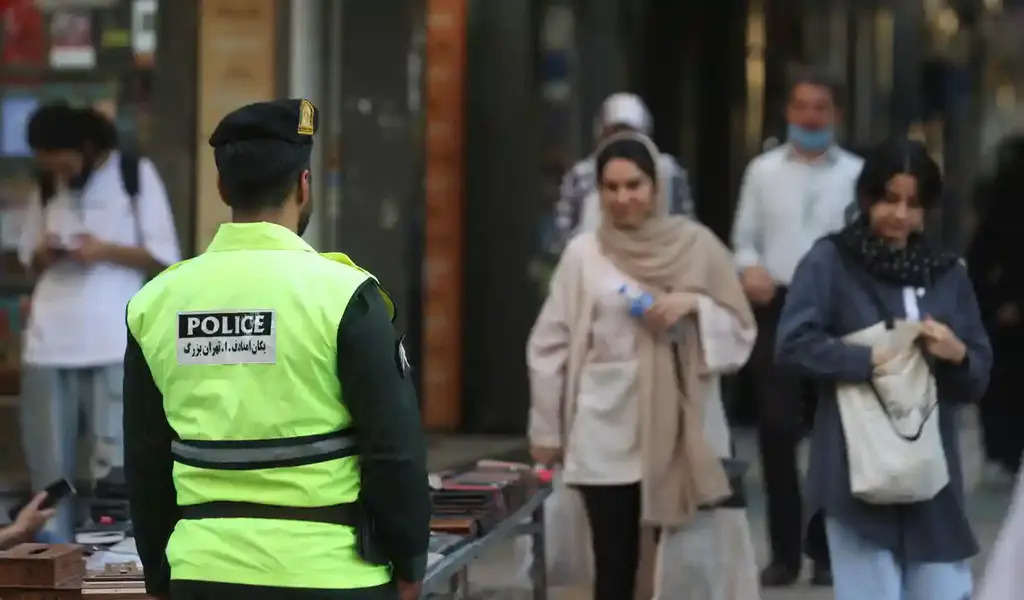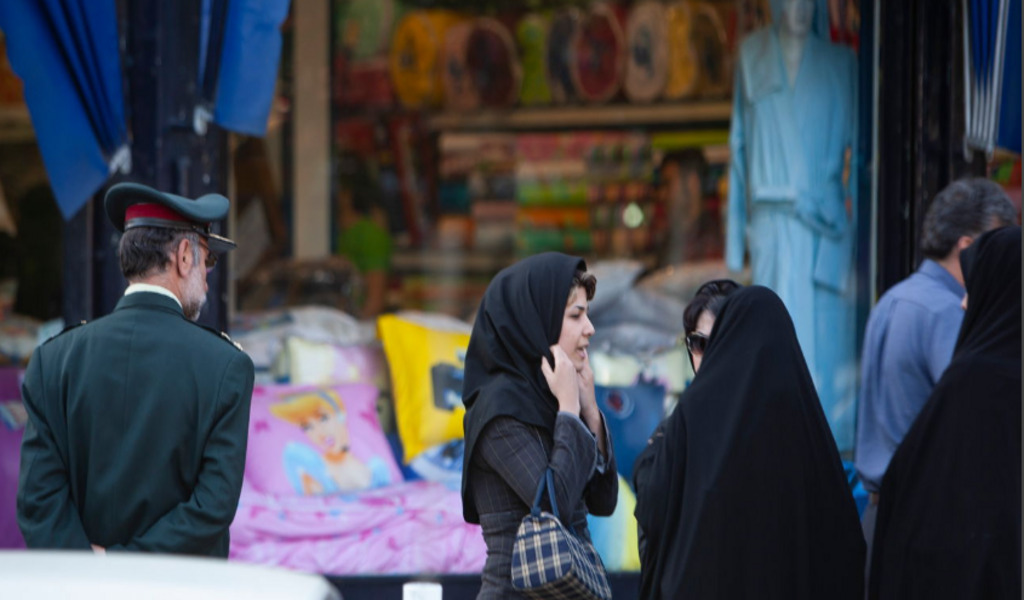(CTN NEWS) – Iranian authorities have recently launched a new initiative aimed at enforcing the compulsory wearing of the Islamic headscarf for women.
This campaign comes ten months after the tragic death of Mahsa Amini, a 22-year-old woman, while she was in custody.
Resurgence of Protests and Morality Police in Iran following Amini’s Death
Amini’s death had triggered widespread protests across the country, with demonstrators demanding significant changes and even the overthrow of the longstanding theocratic regime that has governed Iran for more than forty years.
Following the incident, the authorities had scaled back the presence of the morality police in an attempt to quell the growing unrest.
However, with the recent announcement, these forces are now being redeployed to the streets, marking a resurgence of their presence.

Resurgence of Morality Police and Controversy over Dress Code Enforcement in Iran
The morality police, known for their strict enforcement of the Islamic dress code, will resume their duties, ensuring that women comply with the requirement to wear the headscarf.
This move has been met with concern and opposition from various segments of Iranian society, including activists and citizens who view it as a regressive step and a violation of individual freedoms.
The death of Mahsa Amini had exposed deep-seated frustrations and disillusionment among Iranians, particularly the younger generation, who are seeking more personal freedoms, social reforms, and a shift towards a more inclusive and progressive society.
The resumption of the morality police’s activities has reignited these grievances and is likely to further fuel discontent among those who desire change.
It remains to be seen how the Iranian population will respond to this new campaign.
While some individuals may adhere to the mandatory dress code to avoid confrontations with the authorities, others may choose to push back against these restrictions, potentially leading to renewed protests and clashes between demonstrators and security forces.
The situation in Iran continues to evolve, and it is uncertain how the government will address the underlying concerns of its citizens.
The imposition of stricter dress code enforcement highlights the ongoing struggle between conservative elements within the regime and those advocating for greater personal freedoms and social progress.
Decline of Protests and Relaxation of Morality Police Presence in Iran
Earlier this year, the protests in Iran gradually subsided following a severe crackdown by the authorities, resulting in the deaths of over 500 protesters and the detention of nearly 20,000 individuals.
Despite these measures, many women, particularly in Tehran and other cities, continued to defy the official dress code by not wearing the Islamic headscarf.

Resumption of Morality Police Activities and Arrest of Actor in Iran
In the aftermath of the protests, sightings of the “morality police” on the streets became increasingly rare, leading to speculation, later refuted, that they had been disbanded.
However, the Iranian authorities maintained that the rules regarding the mandatory hijab had not changed.
The ruling clerics in Iran consider the hijab as a fundamental element of the Islamic revolution that brought them to power.
They perceive more relaxed dress styles as a symbol of Western decadence, contrasting with their conservative values.
On Sunday, General Saeed Montazerolmahdi, a police spokesperson, announced that the “morality police” would resume their activities by notifying and detaining women who were not wearing the hijab in public.
In Tehran, both male and female members of the “morality police” could be observed patrolling the streets using marked vans.
In a separate incident, Mohammed Sadeghi, a relatively unknown young actor, was arrested by the police during a raid on his residence. It appears that Sadeghi had livestreamed the raid on social media.
Prior to his arrest, he had posted a video in response to another online video showing a woman being detained by the “morality police.”
In his video, he expressed strong emotions, stating that witnessing such scenes might drive him to commit acts of violence.
According to the website of the semi-official Hamshahri daily, which is associated with the Tehran municipality, Sadeghi was arrested on charges of inciting people to use weapons against the police.

The issue of the hijab became a significant rallying point during the previous year, with women taking a leading role in the protests.
What began as demonstrations quickly transformed into demands for the overthrow of Iran’s clerical rulers, who were accused by the predominantly young protesters of corruption, repression, and being disconnected from the realities of society.
The Iranian government, without providing evidence, attributed the protests to a foreign conspiracy.
Numerous Iranian celebrities, including renowned directors and actors from the country’s esteemed film industry, actively participated in the protests.
Some Iranian actors were detained for either appearing in public without wearing the hijab or expressing support for the demonstrations.
In a recent incident, actor Azadeh Samadi was not only prohibited from using social media but was also mandated by a court to undergo psychological treatment for an alleged “antisocial personality disorder.”
This ruling came after she attended a funeral two months ago while wearing a cap on her head.
RLATED CTN NEWS:
Deadly Flooding Ravages South Korea, Claims 22 Lives As Torrential Rain Persists
India’s Path To Becoming The World’s Second-Largest Economy By 2075: Goldman Sachs Projections
China’s Ambitious Plan: Landing Humans On The Moon By 2023 With Dual Rocket Approach



